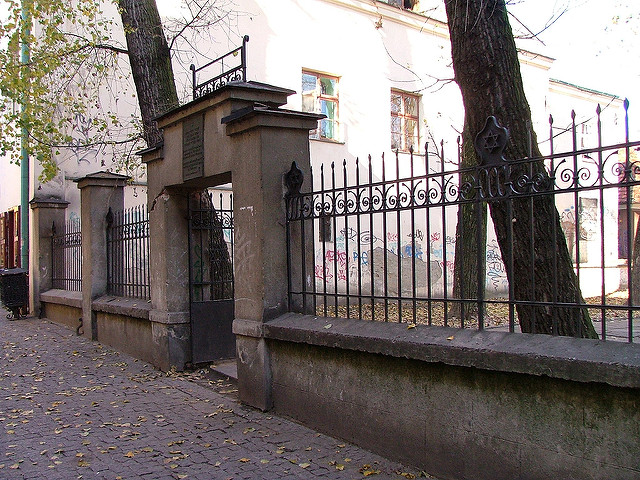
On November 9th, 1938, thousands of Jewish stores, homes, and places of worship across Nazi Germany were destroyed by extremist mobs. During Kristallnacht, or “The Night of Broken Glass,” dozens of Jews were murdered and another 30,000 were sent to concentration camps in this crucial shift from anti-Semitic language to physical violence. This year’s commemoration of Kristallnacht comes in the aftermath of the shooting of 11 Jewish congregants in a Pittsburgh synagogue. In recent years, ideologically motivated violence has been increasing against religious minorities. Jewish and Muslim congregations have heightened their security measures in the face of such threats. In a new article in The Conversation, Christopher Scheitle and Jeffery Ulmer analyze these increased protections and the heightened fear among many religious minorities in their spaces of worship.
Using surveys and interviews, Scheitle and Ulmer conducted a study of over 1,300 congregations to examine crime and security in religious spaces. While many congregations experienced vandalism or theft regardless of religion, synagogues and mosques experienced threats of violence at much higher rates:
“Crimes, most commonly vandalism and theft, were committed at about 40 percent of congregations in the year prior to the survey. This overall percentage was not significantly different across religious traditions. When we dug deeper, though, we found that synagogues and mosques deal with crime-related problems that are much different than the average church. Our survey found, for instance, that synagogues and mosques were three times more likely than congregations overall to have received an explicit threat in the prior year.”
Many synagogues and mosques have sought to respond to these threats through increased security. In comparison to other religions, Jewish and Muslim congregations have incorporated many more security cameras and guards. However, these implementations are not without cost:
“Our interviews found that most places of worship have a hard time implementing security. Some of this is simply not enough money. Larger and wealthier congregations tend to have more security in place. Beyond resources, our interviews consistently found that places of worship view security measures as a potential threat to their mission of creating a sacred space that is open to their communities.”
Scheitle and Ulmer suggest that congregations can better protect themselves through cost free measures, like limiting entrances to places of worship, and through community partnerships. A knowledge of the legacies of anti-Semitism and other forms of religious discrimination also emphasizes the need for compassion and concern in the wake of such tragedies.

Comments 3
John Malek-Ahmadi — November 9, 2018
The ramping up of security at public venues after high profile attacks like this one, or what we recently unfolded in Thousand Oaks, is largely symbolic. We tend to see a lot of police presence a few days or weeks following the attack. Then, armed guards and marked vehicles become sparse. We allay the fears citizens have in the short term. It seems that the United States may be forced to become a police state as a means of deterring this type of violence. Perhaps some of those troops we are sending to the border would be better served policing our houses of worship, music concerts, schools, offices, movie theaters, bars, night clubs, and other heavily populated events. Yet, it should be kept in mind that, although these types of attacks are on the rise, are still statistically rare.
Souliere — December 7, 2022
The Protecting Places of Worship forum is a half-day session that provides faith-based leaders and congregations with information about religious hate crimes, state and federal hate crimes laws, law enforcement threat assessments, and ways to protect places of worship from potential hate crimes and other threats of ... MyTHDHR Your Schedule
Mike — June 12, 2023
Hiiii